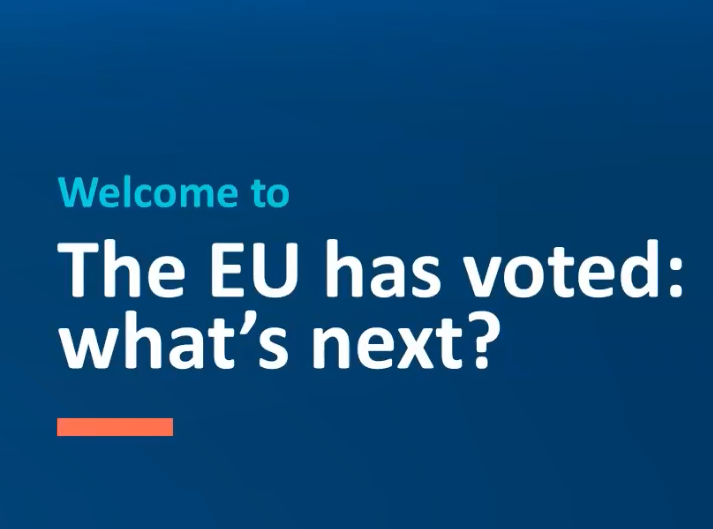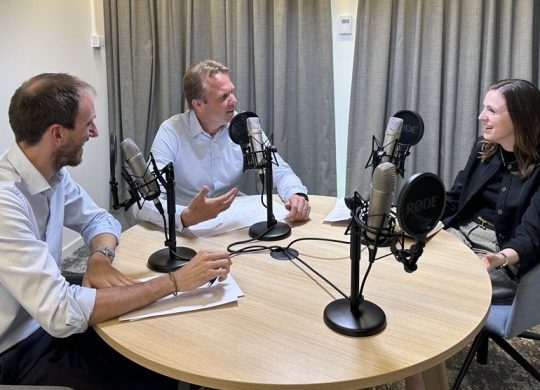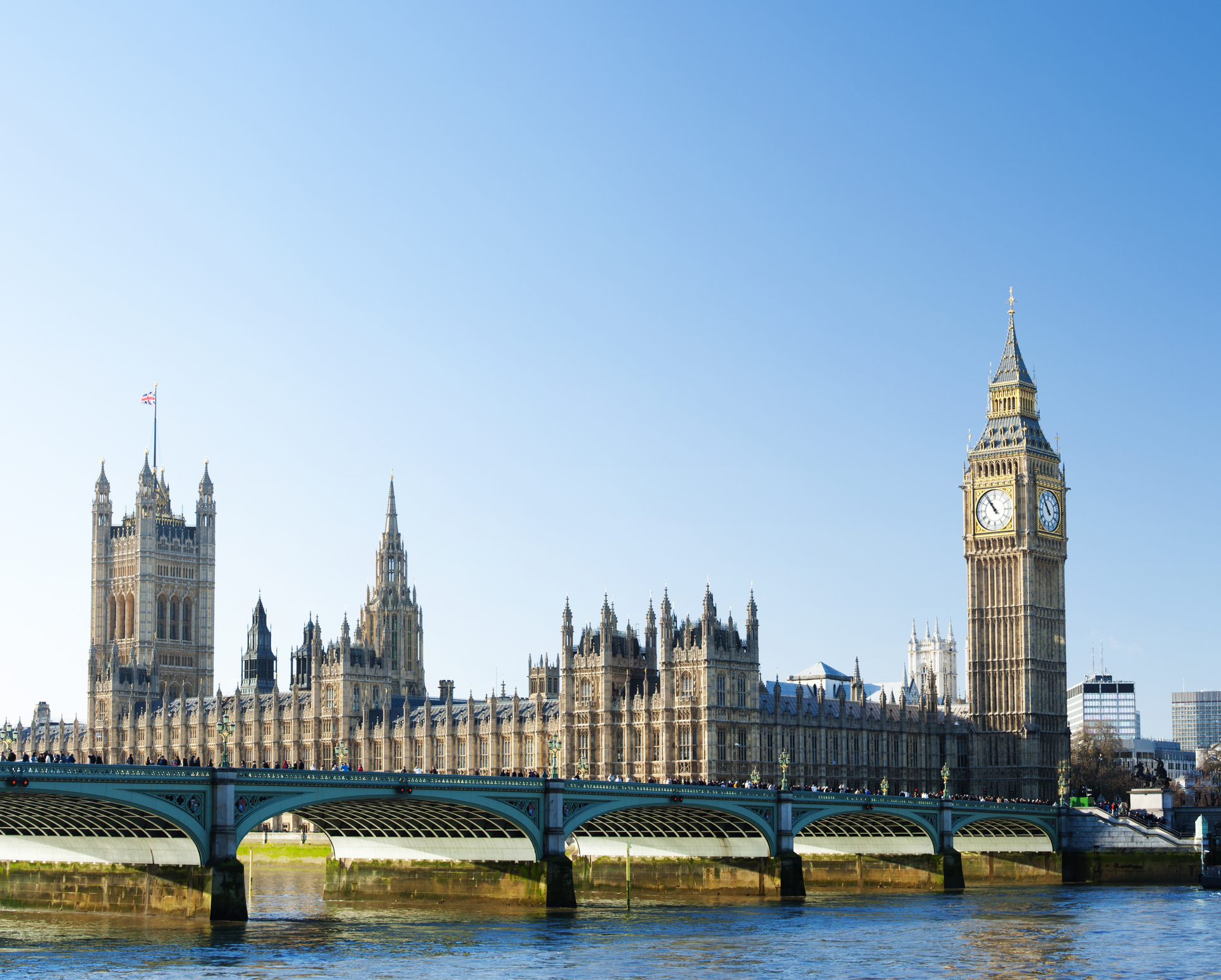Global Public Affairs Newswire – 14 June 2024
Welcome to the latest installment of FTI Consulting’s fortnightly Global Public Affairs Newswire.
This week is an election special, with updates from elections in the EU, US, France, UK, India, and South Africa, as well as special reports from our teams in Germany and Ireland on the impact of the EU elections in those markets.
Beyond this, we bring you our usual comprehensive market update, with our analysis of the latest big public affairs developments across the world’s major markets. This week, we look at Fiscal Year 2024 spending bills in the US Congress, President Xi’s reform priorities for a modern Chinese corporate system, and the 2024 Korea-Africa summit, among others.

Our global team are closely tracking the key votes and contests in this worldwide ‘Year of the Election’. In each edition of the Newswire, we look to dive into the upcoming implications, considerations, and opportunities for business.

The recent elections held from June 6-9 across the European Union (EU) had significant implications at both the EU and national levels. In addition to the European Parliament elections, Belgium, Bulgaria, and Ireland conducted national, regional, and local elections. Key results indicate a shift in the political landscape.
The European People’s Party (EPP, centre-right) emerged as the largest group in the European Parliament with 26% of the seats, while the Socialists & Democrats (S&D, centre-left) secured 19%. Renew Europe (RE, centre/liberal) saw a decline, obtaining 11% of the seats. The Greens and the Left also faced losses, capturing 7% and 5% of seats, respectively. The European Conservatives and Reformists (ECR, right) and Identity and Democracy (ID, far-right) saw gains, with ECR poised to potentially become the third-largest group.,
In the European Council, national election outcomes have weakened some governments’ influence, such as France’s and Germany’s. This shift might benefit leaders from countries like Italy and Poland, who are likely to leverage their success to gain more power within the EU. The possibility of Portugal’s former Prime Minister, Antonio Costa, running for the Presidency of the Council, with the potential backing of the EPP, is also noted.
For the European Commission, Ursula von der Leyen is in a strong position to retain her presidency due to the EPP’s dominance, but she will need to secure support from both the European Council and Parliament. However, the grand coalition supporting her has become slimmer, necessitating potential alliances with other groups, particularly selected ECR delegations and/or the Greens.
Overall, these elections suggest a more fragmented European Parliament and a shifting balance of power within the European Council, which will influence EU politics and policies for the next five years and beyond.

Most national polls continue to predict a close race, but just how close depends on what kind of race it may be. In a two way race, former President Trump leads by just a half a point. That number jumps to two points when the race moves to three (presumably with Robert F. Kennedy Jr. as the third candidate). All this comes as a separate poll found that 54% of those supporting President Biden say the main reason for their support is to oppose President Trump. That equates to a seven-point increase from a similar survey conducted in March of this year. Observers believe this dynamic is not lost on the Biden campaign, as they will likely increasingly frame the election as a stark choice between the candidate’s approach to governing as President Biden most recently did in his D-Day speech at Normandy, going after Trump for disparaging service members.
I Stand by my Convictions?
Last month, former President Trump was found guilty in a New York State court on 34 felony counts of falsifying business records. This week, President Biden’s son, Hunter Biden, was found guilty in federal court in Delaware of lying on an application to purchase a gun. Both cases are likely to be appealed by the defendants, though President Trump remains scheduled for sentencing on July 11. As political observers sort out what these judgements may mean for the presidential elections, the Trump campaign has reiterated its belief the former president has been unfairly targeted by a “weaponized” justice system while President Biden issued a statement that he accepts the “outcome of this case and will continue to respect the judicial process.” Some commentators suspect President Biden’s polling may have benefitted from Trump’s conviction, with Biden leading Trump by one point in one major national poll for the first time in a month. The Trump campaign is adamant that the convictions and ongoing prosecutions of the former President underscore a key campaign theme to his base vote: the system is rigged, and only a President Trump can fix it.
Let’s Get Down to Business
This week in Washington, the influential Business Roundtable (BRT) will meet with political leaders and policymakers. The BRT, comprised of the nation’s leading CEOs, will likely focus in part on the expiration of the Tax Cuts and Jobs Act of 2017, set to expire under the next administration. President Trump will speak to the group this week, while President Biden is sending his Chief of Staff, citing his commitment to attend the G-7 in Italy alongside his world leader counterparts. And while Trump meets with BRT, Treasury Secretary Janet Yellen is scheduled to speak to the Economic Club of New York to make the case for the Biden Administration’s economic record. Trump is expected to call for the extension of the TCJA as well as some additional tax cuts, while his campaign alleges President Biden would raise the tax burden during a second term. Secretary Yellen, in her “rebuttal”, will attempt to address some misperceptions about the status of the U.S. economy since Biden took office. All this, while Republicans on the Hill are already meeting to discuss how to “fast track” tax cuts in a new administration through a process called reconciliation (which would require a Republican sweet of the House, Senate, and White House). At the same time, the influential president of the Teamsters labor union has made an unusual request of both campaigns: an opportunity to address both the Republican and Democratic conventions.

After suffering a heavy defeat on 9 June at the hands of Marine Le Pen’s far-right Rassemblement National (RN) in the European parliamentary elections, French President Emmanuel Macron unexpectedly announced a snap general election. Declaring the dissolution of Parliament, he said the two rounds of voting would take place on 30 June and 7 July, leaving a very short time for the various parties to present their candidates and prepare their campaign.
The very negative results for the governing coalition, coupled with the already existing democratic fatigue felt in France put l Macron in a politically impossible situation. He likely felt he would have been forced into an early election in the autumn, as a result of a no confidence vote (most likely on the budget). The snap election is seen as a high-stakes gamble; and a bet on tactical voting is a risk that may not pay off for Macron, who will be counting on his electoral base to back other moderate forces in head-to-head contests with the far right. In other words, Macron is presenting the people with the stark choice between the far-right and the rest of the political landscape. If he fails, France will enter a period of ‘cohabitation’ a French term used to describe when the President and Prime Minister are from different parties.
The general political situation is still fluid, with a lot hinging on the shape of electoral alliances. Polls currently indicate that the likely outcome is a hung parliament.

Political parties in the United Kingdom published their manifestos this week ahead of the General Election scheduled for Thursday 04 July. Parties in the UK coordinate their manifesto launches so as to avoid competing for news coverage- this year, the Liberal Democrats went first, followed by the Conservatives, the Greens, and the Labour Party.
The Liberal Democrats, a minor party who were last of national relevance as the junior party in the Conservative-Liberal Democrat coalition which governed the UK from 2010 to 2015, focussed heavily on health and social care in their manifesto, pledging to deliver a “bold, ambitious and fully costed plan to tackle the health and social care crisis top to bottom.” Having unsuccessfully pinned their electoral hopes firmly on a strong anti-Brexit stance at the last General Election, the Liberal Democrats have turned their focus this time domestic, hoping to strengthen their party’s position.
Next up were current Prime Minister Rishi Sunak’s Conservatives, who have won the last four General Elections, but on current polling look likely to lose this year’s contest by a landslide. The Conservative campaign this year has focussed heavily on tax, and their manifesto continued this trend. Sunak’s big offering to voters was a pledge to cut National Insurance (a compulsory social security payment which operates like a tax) by 2p, and abolish it entirely for the self-employed.
The Conservatives were followed by the Green Party, which in the UK remains very much a fringe movement compared to Green parties in other European countries. The Greens have only elected one MP since 2010, though they are hoping to make progress in 2024, with a manifesto pledging huge spending increases across health, utilities, and housing. The Greens hope to pay for these policies with a wealth tax on the very rich, and tax rises for everyone earning over £50,270 (USD $64,288).
Last, but from the look of the polls, certainly not least- Labour launched their 2024 manifesto, titled simply “Change”. Labour’s manifesto focusses on economic growth and promises “stability over chaos, long-term over short-term, an end to the desperate era of gestures and gimmicks”. Labour are set to be the primary beneficiaries of chaos in the governing Conservative Party over the last Parliament- the Conservatives are on their fourth Prime Minister in the last five years. This looks likely to pay off at the election, with most forecasts pointing to a considerable Labour majority in the House of Commons.
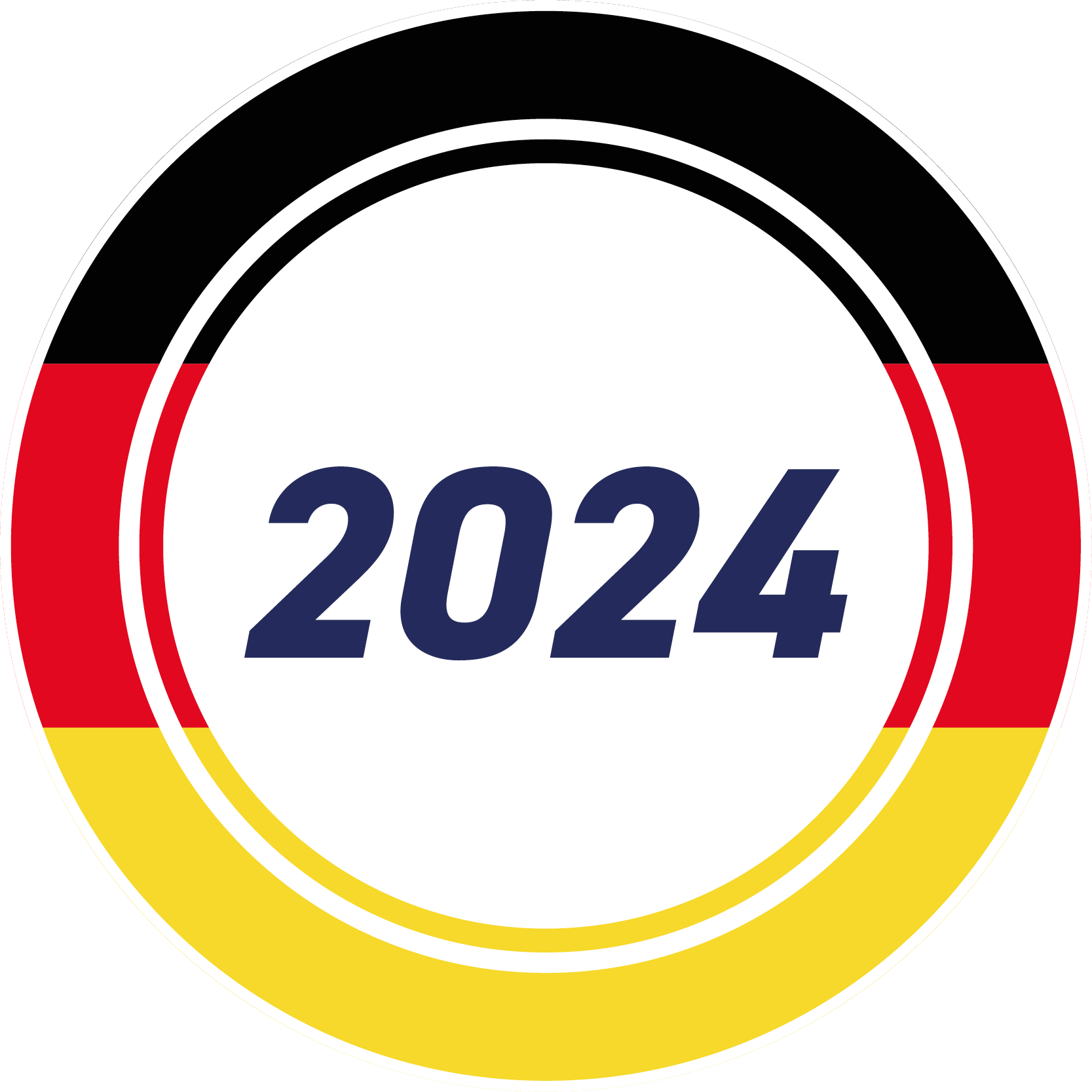
The clear winner of the European elections in Germany is the CDU/CSU. With 30% of the vote, they have strengthened their position within the EPP parliamentary group and solidified their position in Germany ahead of the federal elections in 2025.
The SPD, which holds the chancellorship, recorded its worst result ever at a EU-election with a vote share of 14%, significantly weakening its position both at the federal level and within the S&D group. The Greens (12%) also lost a significant number of votes. Their poor showing signals a strong de-prioritization of sustainability issues among German voters. The FDP (5%) did relatively well, considering that they usually benefit from strategic voting, which is not possible with only one vote.
The poor performance of all three currently governing parties (SPD/ Greens /FDP) is a clear criticism of the current political course in Germany and weakens the Federal Government. The result will lead to all three parties increasing the pressure on the other coalition partners to sharpen their own profile.
The strong showing (16%) of the right-wing populist Alternative for Germany (AfD) underscores a clear shift to the right. This was primarily driven by dissatisfaction with the current Federal Government and not primarily a vote against EU topics. Key issues influencing this shift included migration and Germany’s poor economic situation. The debate on how to address the AfD at both state and national levels is thus likely to intensify.

Following an intense election season, South Africa’s longstanding governing party, the African National Congress (ANC), failed to gain an outright majority in the elections: attaining 159 Parliamentary seats, far short of the 201 seats needed to form a majority and elect its presidential candidate unopposed. The ANC and current South African President, Cyril Ramaphosa, announced the party’s bold plan to form a Government of National Unity (GNU) – which would invite all parties elected to Parliament to form the country’s executive. The GNU, in name, is a reincarnation of Nelson Mandela’s reconciliatory efforts at the dawn of democracy 30 years ago.
The Democratic Alliance (DA), the leading opposition, and the Inkatha Freedom Party (IFP), a right-wing party, have publicly indicated an interest in engaging in talks with the ANC on the proposed GNU. This coalition iteration seems to be gaining momentum and is viewed as palatable to investors and the broader business community, who have raised concerns surrounding policy uncertainty and stability brought about by the coalition formation at national government level. The business community is wary of a possible coalition government between the leftist radicals, the Economic Freedom Party (EFF) and the uMkhonto weSizwe Party (MKP); most recently the global rating agency Fitch cautioned against such a possible coalition with the ANC.
South Africans eagerly await indication on the coalition formation when its Parliament holds its first sitting to elect its new President, currently scheduled for the 14th of June. The sitting is not without legal challenges as the newly formed MKP, led by Former President Jacob Zuma and now the country’s third largest party, is attempting to interdict the sitting through the Constitutional Court, citing election irregularities albeit with no evidence presented.
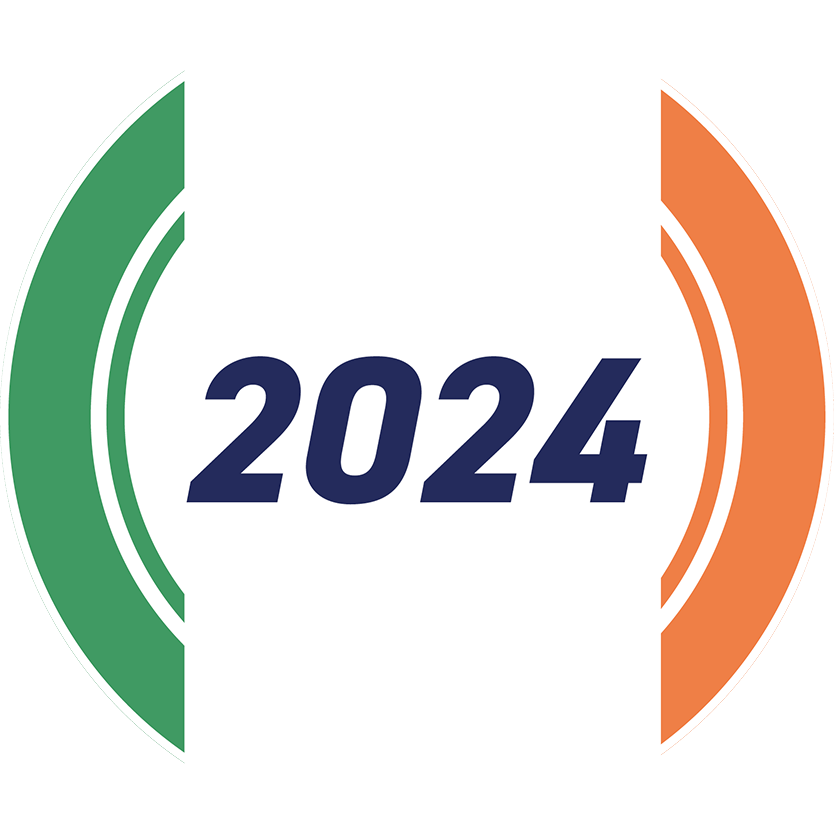
As we come to the end of counting in Ireland’s local and European elections, it appears that the centre is holding for now. Government coalition parties, Fianna Fáil and Fine Gael, are considered the winners of the election. Despite a marginal drop in seats for both parties, the two will be the largest parties in local government and had candidates elected in each of the three European constituencies. The same cannot be said for their Green Party colleagues, who have failed to retain their two MEP seats and suffered a drop in support at local level. Meanwhile, main opposition party, Sinn Féin, who until recently had been leading in polls since the 2020 General Election, failed to perform as expected. While their representation at local level has increased, questions are now being raised over the party’s election strategy and ability to connect with the electorate on core issues. While Lynn Boylan managed to win back the seat she lost in 2019, their outgoing MEP, Chris MacManus, failed to retain his seat. Significant support for far-right candidates also failed to materialise, despite some successes at local level. Taoiseach (Prime Minister) Simon Harris, leader of Fine Gael, is now facing calls to capitalise on their success and Sinn Féin’s struggles, by calling an early general election. For now, he is continuing to commit to the Irish Government to serving its full term until March next year.
Market updates

The U.S. House of Representatives took the first step in passing the first of the Fiscal Year 2025 spending bills, with House leadership setting an ambitious goal to pass all 12 spending bills before the scheduled August recess. While it remains likely that both the House of Representatives and the Senate will not be able to come to an agreement on how to fund the government funding before the impending November elections, Speaker Mike Johnson says he is determined to move through as many of the 12 spending bills as possible over the coming weeks.
House leadership has also made plans to pass their version of the annual defense spending bill, the National Defense Authorization Act (NDAA), but the real work of compromise once the Senate passes its version of the bill will likely not begin until after November’s elections. Apart from the NDAA and annual spending bills, both chambers of Congress have dedicated considerable floor time to political messaging bills – legislation that has little chance of movement in the divided Congress but shines a light on certain policy priorities heading into the height of campaign season.
Meanwhile, President Biden signed an executive order temporarily shutting down asylum requests when crossings at the U.S.-Mexico border surge. The directive follows months of mounting political pressure for the Administration to take action at the southern border and aims to address voters’ concerns over immigration, but Republicans on the campaign trail quickly denounced the executive order as “too little, too late.”

Prime minister Narendra Modi took the oath of office on the evening of 9 June for a third straight term as the head of a coalition government, after two full tenures in which the Bhartiya Janta Party (BJP) enjoyed absolute majority on its own. Jawaharlal Nehru, India’s first PM, was the only other leader so far to have been elected PM thrice.
The oath ceremony was attended by leaders of the neighbouring countries of Bangladesh, Bhutan Maldives, Mauritius, and Sri Lanka. The President of India administered the oath of office and secrecy to PM Modi, and to 71 ministers, including 30 union cabinet ministers, 36 ministers of state and five ministers of state with independent charge.
Many in the cabinet are familiar faces, such as Amit Shah (Home), Nirmala Sitharaman (Finance), S Jaishankar (External Affairs), Rajnath Singh (Defence), Piyush Goyal (Commerce and Industry, et al), and Nitin Gadkari (Roads and Highways). There are nine new faces in the 30-member cabinet, signalling continuity and stability while accommodating new allies.
The 2024 election, held from April 19 to June 1, was the world’s largest democratic event: 642 million voters, including 312 million women, casting their vote, of the 969 million eligible to do so. India has a multi-party parliamentary government with a bicameral legislature. The BJP faced a strong challenge from the Congress-led opposition ‘INDIA’ alliance, which pushed back against the Modi-led BJP’s aggressive nationalism, polarizing religion-laced politics and inadequate job-creation.
While the BJP has not formed a majority on its own, Modi’s third term does indicate overall economic and political stability and policy continuity given the country’s macroeconomic fundamentals and solid corporate earnings. The new government’s ministries are expected to announce their First 100 Days programs soon, something they have been working to put together for the past few months or more and had sought industry inputs for.

In the latest meeting of the Central Commission for Comprehensively Deepening Reform – a supra party-state organ used to steer policy making and accelerate reform priorities for the President, Xi emphasized the efforts to improve the modern corporate system and foster a globally competitive innovation system, two areas crucial to China’s development under increasing geopolitical tension and technological competition.
Overall, the meeting hinted that China is to offer greater assurance and predictability to the private sector in efforts to improve trust and stimulate economic growth and that China acknowledges the need for external talents and global engagement to overcome technological challenges in pursuit of its international competitiveness in innovation.
The meeting highlighted some key features of the “modern corporate system with Chinese characteristics” – emphasizing the separation of government and corporates and more clarified rights and responsibilities. The meeting stressed strengthened oversight and management for state-owned companies and encouraged improved governance for privately-owned enterprises, with different sizes, ownership structures, and development stages taken into consideration.
On innovation, President Xi insisted on an open stance to promote innovation and improve the institutional mechanism in addressing shortcomings and challenges in science and technology. In building a globally competitive environment, the meeting emphasized both “going out” – meaning encouraging Chinese corporates, institutions, and researchers to actively engage in international collaboration, and “coming in” – referring to attracting foreign companies, talents, and investments into China – as the solutions to boost domestic technological and scientific development.
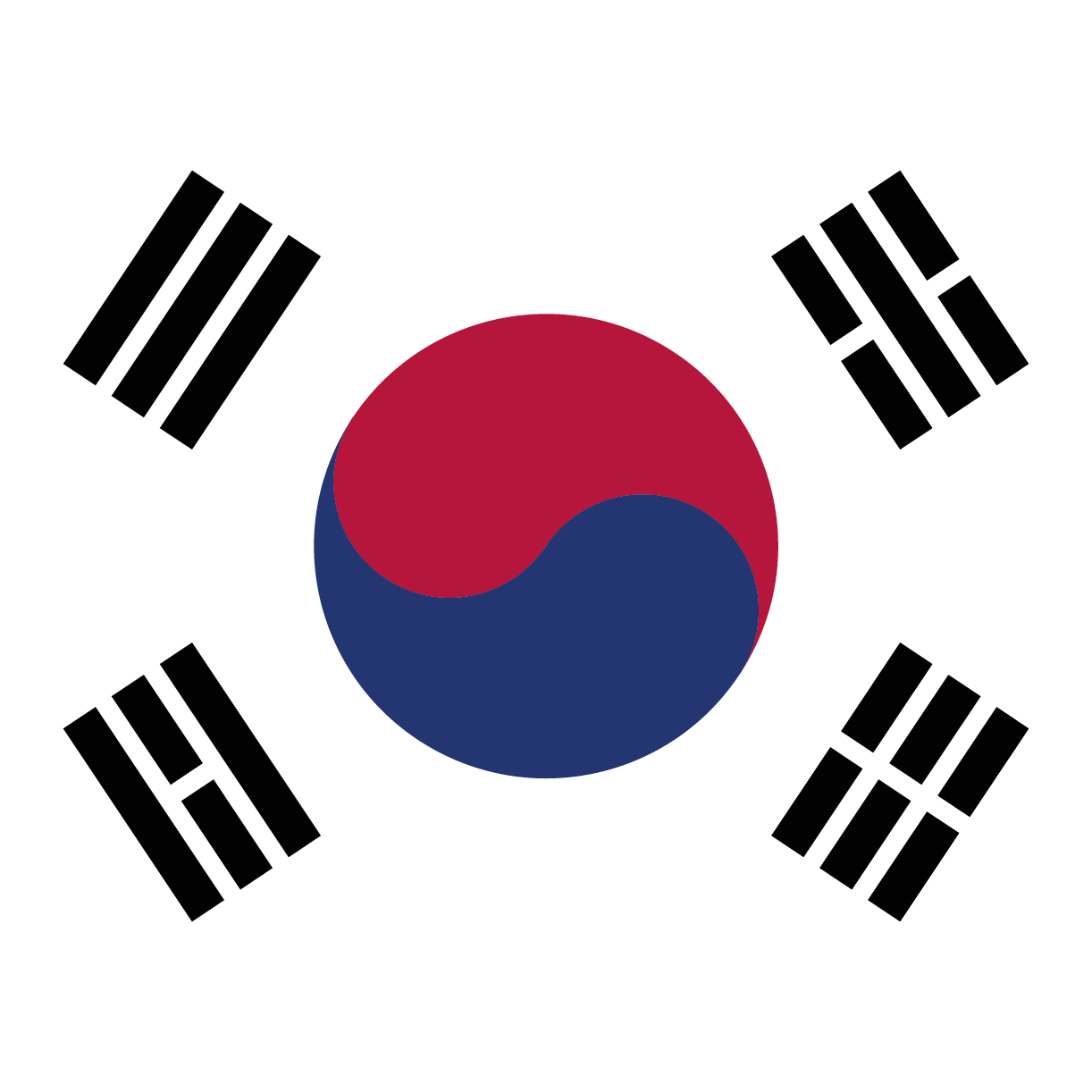
Under South Korea’s Global Pivotal State vision – the current government’s ambition to become a hub in the Indo-Pacific for security, economics, technology, norms and values – South Korean President Yoon Suk-yeol hosted the Korea-Africa Summit (‘the Summit’) on 4-5 June inviting delegates from 48 African nations. The Summit, themed “Creating a Future Together”, also served as a platform for bilateral meetings with 25 heads of states and the African Union.
The Joint Declaration of the Summit emphasized cooperation in various fields, including climate change, efforts to denuclearize the Korean Peninsula, and securing strategic minerals and food resources. The newly established Korea-Africa Key Minerals Dialogue represents as a significant outcome of the Summit, a permanent consultative body that oversees key mineral supplies from African countries into South Korea’s electric vehicle and renewable energy industries. The declaration also consecrated Korea’s pledge to bolster its financial assistance program (Official Development Assistance) to USD 10 billion for Africa by 2030 and to provide USD 14 billion in export financing to facilitate Korean companies into the region.
During the Summit, South Korea’s Ministry of Trade, Industry and Energy (MOTIE) signed MOUs with 11 countries to lay the groundwork for future bilateral economic cooperations. Negotiations between South Korea and Tanzania on a potential Economic Partnership Agreement (EPA) took place during the summit, while Morocco agreed on an EPA framework covering supply chain, digital, and clean economy cooperation with the hosting nation. In addition, multiple Trade and Investment Promotion Frameworks (TIPFs) were signed between South Korea and eight African nations, including Ghana and Malawi to facilitate a customized economic cooperation without tariff concessions. MOUs on key mineral cooperation were also signed with Tanzania and Madagascar to strengthen supply chain partnerships.
The Summit signals the start of President Yoon’s plans to establish a “K-Silk Road” for diplomacy and economic cooperation. Through 15 June, President Yoon will be accompanied by a delegation of 80 Korean business leaders including the chairmen of Korea-based conglomerates SK Group, Lotte Group and POSCO Holdings during his visit to Turkmenistan, Kazakhstan and Uzbekistan.

Following a series of legislative defeats and growing friction with party leaders, congressional caucuses and business groups, the Lula administration’s governability index (I-Gov) registered its lowest rate in May, reaching 40.4%. The index, organized by a data intelligence company, measures the government’s ability to implement priorities and push its agenda with other branches of power and its impact on public opinion. According to a survey by PoderData, the government’s disapproval rating reached 47% in May, surpassing the approval level (45%) for the first time since the beginning of the mandate.
These results put Lula’s administration “at risk”, with the lowest governability index recorded since the start of his third term and impacting its ability to pass bills on specific agendas that got him elected. Although it does not imply an immediate risk of Lula’s removal, the picture could lead to an unsustainable situation marked by further political defeats and greater government immobilism. This adds to the challenging fiscal situation, with a worrying increase in the public deficit, which could reach R$ 67 billion or 0.6% of GDP by year-end according to BTG. While hindering the government’s ability to control inflation and boost growth, this scenario has concerned businesspeople and investors, who project a drop in the confidence levels in the Brazilian economy and an increase in local instability. In contrast to the challenging domestic agenda, Lula has been striving to maintain an active role in foreign policy. Last week, the vice-president and Minister of Development, Industry, Trade and Services, Geraldo Alckmin, led a delegation of Brazilian ministers and businesspeople to Saudi Arabia and China, aiming to strengthen ties, establish cooperation in various areas, and open markets for Brazilian products. On June 14th, Lula will attend the G7 meeting in Italy, where he is expected to hold bilateral meetings with other leaders, as well as reinforcing some of the issues championed by Brazil at the G20, such as the taxation of super-rich, the fight against climate change and the reform of global governance institutions.

In a historic move, Prime Minister Anwar Ibrahim’s administration ended the government’s 25-year subsidy on diesel. Putrajaya floated diesel prices on 10 June, which saw it retailing at USD0.71 per litre – up 55% from the previously subsidized price of USD0.46 per litre – although the Bornean states of Sabah and Sarawak will continue to enjoy subsidized diesel for the foreseeable future. Low-income groups across the country will also have access to subsidized diesel.
Prime Minister Anwar has justified his decision to end blanket subsidies on diesel – which will extend to petrol – “to save the country”, in reference to his government’s efforts to reduce the country’s fiscal deficit to 3.5% by 2025. Economists have hailed the end of blanket diesel subsidies as it is projected to save Putrajaya USD852 million a year, while also addressing leakages that have resulted in millions of dollars’ worth of diesel being smuggled annually to neighbouring Thailand.
However, political pundits anticipate the prime minister’s popularity to take a hit, as many struggle with inflation coupled with stagnant minimum wages that have not corresponded proportionally in the last two decades to the rising cost of goods. Nonetheless, even with the end of blanket subsidies on diesel, the fuel remains around USD0.20 cheaper in Malaysia than in Indonesia and Thailand – and is nearly USD2 less than in Singapore.

Colombia’s foreign policy regarding Gaza has led to Colombia cutting diplomatic ties with Israel and the issuance of a Decree that ceases exportations of coal to Israel. In this context and following complex debates on drug policy, the United States’ House of Representatives announced a proposal to cut funds allocated to Colombia by 50%, arguing that Petro’s foreign policies are detrimental and contrary to the economic and national security interests of the United States. Petro now faces pressure in foreign policy and investor confidence, under which Colombia has consistently been the most important U.S. ally in the region.
The current fiscal situation faces a challenging end of year scenario due to low tax revenue and a continuous decline in investment, particularly in the business sector. The Administration has responded by freezing COP $20 billion of the budget allocated for this year, which may hinder the progress of key initiatives, including infrastructure, health and education.
This economic outlook is further challenged by continuous downgrades in credit ratings by agencies such as Fitch Ratings and Moody’s, which have lowered the country’s investment grade given the Government’s proposals to relax fiscal rules. Although the budget allocation proposal still requires Senate approval, it is clear that Colombia’s fiscal scenario questions investor confidence regarding economic growth, legal stability, and investment prospects. In a General Election year in the United States, actions taken by the Colombian government regarding national security and the stabilization of foreign investment continue to generate regional debate due to spillover effects.

Spain has recently initiated the processing of a draft law aimed at protecting minors online, marking a significant step in the country’s commitment to digital safety for young users. As Spain advances this legislation, it aims to not only protect its youth but also to set a EU standard, reinforcing its role as a leader in digital safety initiatives.
Spain’s approach is comprehensive and ambitious. The draft law includes measures such as mandatory age verification systems to be implemented by potentially harmful online services, raising the age of consent for processing personal data from 14 to 16 years, and requiring all technological devices to include accessible parental controls by default. Additionally, it prohibits minors from accessing lootboxes in video games. This initiative highlights Spain’s determination to lead the issue of online protection for minors at the European level. By making this a priority for the next EU legislature, Pedro Sánchez seeks to gain increased visibility and support from other member states. The recent Louvain-La Neuve Declaration, which already reflects Spain’s influence on minors’ protection and age assurance tools, underscores this collaborative effort.
The draft law’s implications are far-reaching, affecting various sectors including electronic device manufacturers, the video game industry, social media and video exchange platforms, audiovisual media, age verification services, pornography sites, and online gambling. This broad scope ensures a holistic approach to safeguarding minors in the digital space. Political and social conversation around this topic has intensified across Europe, with social media mentions tripling compared to last year. In Spain, media coverage has quintupled since Pedro Sánchez announced legislative measures to protect minors online in January 2024, reflecting strong public and political consensus.
Expert Analysis |
FTI Consulting Webinar: The EU has voted, What’s Next?
On Wednesday 12 June, our Brussels team hosted a webinar to discuss the latest updates following the results of the EU Election that took place on 6-9 June 2024. Our experts Hans Hack, Thea Utoft Høj Jensen, Marija Ivoninaite & Dafni Kachrila Skouteli shared their insights on the outcomes of the election and outline what impact it may have on the EU and countries interacting with the EU as well as business which have presence or ties with the EU.
The Electoral Pulse: The EU has voted, What’s Next?
Tune into the Electoral Pulse’s newest episode where our hosts Anne-Sophie and Jeremy sit down with Hans Hack, FTI Consulting’s Head of Office in Brussels, to discuss the initial results of the EU elections and their implications.
The UK General Election 2024: The Conservative Party Manifesto
With the 2024 UK General Election in full swing, political parties will be focusing on their priorities for the next government, Managing Director Daniel Hamilton and Senior Director Tom Pridham provide their insight into the Conservative Party manifesto.
The UK General Election 2024: The Labour Party Manifesto
Senior Managing Director Gemma Doyle provides her analysis of the Labour Party manifesto, highlighting the key takeaways and giving insight into the major policy announcements and what these could mean for voters and businesses.
US Elections 2024: Navigating Message Amplification in Swing States
The crucial summer months of an election year can be utilized by interested parties to help elevate their issue with elected officials who are on the move. However, an effective communications strategy requires a surgical deployment of public affairs tactics that can position your issue on the campaign trail and beyond.
Mexico Election 2024: Claudia Sheinbaum Elected President in a Landslide
General elections took place in Mexico on Sunday, June 2. The candidate of the ruling coalition, Claudia Sheinbaum, won in a landslide. She will serve a single, six-year term, beginning on October 1.
Upcoming Conferences, Elections and Webinars
- 04 July: General Election (United Kingdom)
- 15 July: Legislative Election (Syria)
- 28 July: General Election (Rwanda)

To be added to the distribution list for the Global PA Newswire, or for further information on the dedicated Public Affairs team at FTI, please contact [email protected]. |
The views expressed in this article are those of the author(s) and not necessarily the views of FTI Consulting, its management, its subsidiaries, its affiliates, or its other professionals.
©2024 FTI Consulting, Inc. All rights reserved. www.fticonsulting.com

